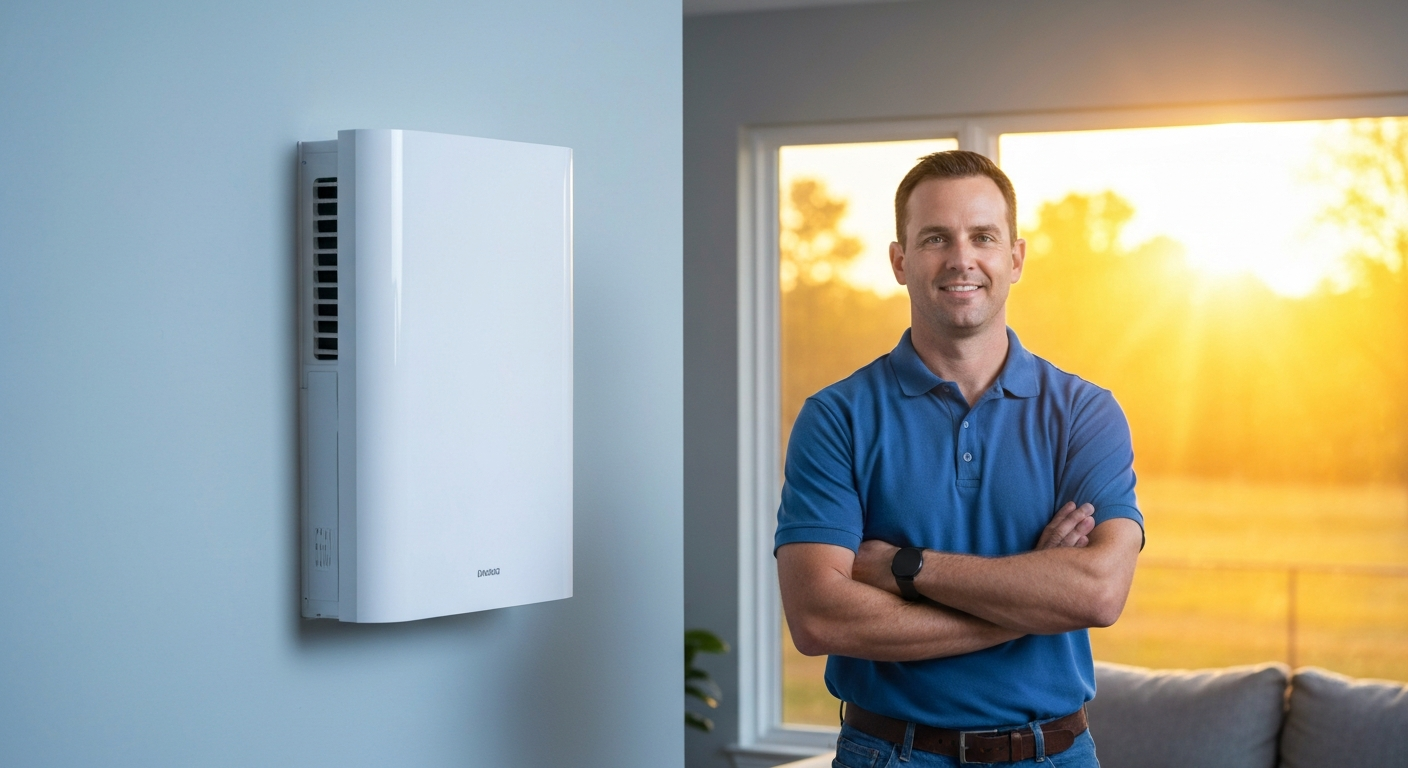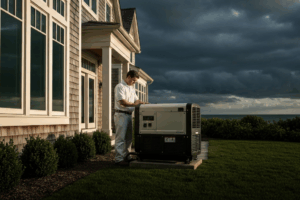
Why Mini-Split Installations Are a Hot Market in Arkansas
If you’ve been a licensed electrician in Arkansas for any length of time, you know the summer drill: sweltering humidity, skyrocketing energy bills, and clients desperate for relief. For years, the solution was a traditional central air conditioning unit. But a powerful shift is underway. Across the state, homeowners are increasingly demanding a more efficient and flexible solution, creating a massive opportunity for savvy electrical professionals. The market for mini split installation Arkansas is not just growing; it’s exploding, and skilled electricians are in the driver’s seat.
The Surge in Demand for the Ductless Heat Pump
So, what’s behind this trend? At its core, it’s about the superior technology of the ductless heat pump. Unlike traditional systems that lose 20% to 30% or more of their efficiency through ductwork leaks according to ENERGY STAR, these systems deliver conditioned air directly into a space. This ductless design is a game-changer for older homes without existing ductwork, new additions, garages, and workshops. Homeowners love the room-by-room “zoning” control, which allows them to cool the kitchen without freezing the bedrooms, a level of customization a standard central air system can’t offer.
This efficiency is measured by SEER ratings (Seasonal Energy Efficiency Ratio). Mini-splits consistently boast higher SEER ratings, often 20 or higher, compared to their traditional counterparts, which translates directly into lower monthly utility bills—a compelling proposition for any homeowner watching Arkansas electricity prices rise.
Financial Incentives Fueling the Mini-Split Boom
High efficiency and comfort are major draws, but a wave of financial incentives has turned the mini-split trend into a tidal wave. These programs make a professional mini split ac installation more affordable than ever, driving customer demand through the roof.
- Federal Tax Credits: The Inflation Reduction Act offers the Energy Efficient Home Improvement Credit (Section 25C), which provides a tax credit of 30% (capped at $2,000 annually) for qualified high-efficiency heat pump installations.
- Utility Rebates: Arkansas utility companies are all-in on efficiency. Both SWEPCO incentives and Liberty Utilities rebates provide homeowners with hundreds of dollars back for installing qualifying systems. For example, SWEPCO’s program for Arkansas customers can provide rebates up to $1,200 for a qualifying ductless mini-split heat pump. Likewise, Liberty Utilities provides Arkansas residential customers with substantial rebates for high-efficiency HVAC upgrades, including ductless mini-splits. These energy efficiency rebates lower the barrier to entry and make the decision to upgrade much easier for your clients.
The Electrician’s Critical Role: More Than Just Wires
This boom is a prime opportunity for any licensed air conditioning electrician. While an HVAC technician may handle the refrigerant lines, the electrical scope of a mini split installation is significant and non-negotiable for safety and performance. This is where your expertise becomes invaluable, especially when clients are tempted by the perceived savings of a diy mini split project bought online.
A professional installation involves:
- Proper Load Calculation: Performing a correct load calculation ensures the new unit doesn’t overload the home’s electrical panel, a critical step mandated by the National Electrical Code (NEC) under Article 220.
- Dedicated Circuit and Disconnect: Installing a new, properly sized circuit and a lockable outdoor disconnect for the air conditioner condensers is a fundamental safety requirement.
- Code-Compliant Wiring: Ensuring all wiring, connections, and components meet or exceed all state and local codes.
By explaining these critical safety steps, you reinforce your value and protect homeowners from the significant fire and electrical hazards posed by improper DIY installations.
Code Compliance is Non-Negotiable
In Arkansas, all electrical work must adhere strictly to the Arkansas electrical code, which adopted the 2023 National Electrical Code (NEC) effective January 1, 2024. This includes specific rules for outdoor equipment. The NEC mandates the protection of electrical wiring from physical damage and UV rays (e.g., Articles 300 and 310), while the safeguarding of refrigerant lines falls under the jurisdiction of the International Mechanical Code (IMC), which is also adopted in Arkansas. The Arkansas Department of Labor and Licensing, through its Board of Electrical Examiners, oversees these regulations, and as a professional, your adherence to these codes protects your license and your clients’ safety.
Career Pathways for Journeyman and Master Electricians
The rise of the mini-split air conditioner market opens new career avenues. A motivated journeyman electrician can specialize in this high-demand niche, becoming the go-to expert for these installations. Building relationships with HVAC companies that need a reliable electrical partner can create a steady stream of work.
For a master electrician, the opportunity is even greater. You can lead installation crews, manage permitting for entire projects, and build a significant portion of your business around this technology. While handling refrigerant requires a separate HVACR license, the electrical portion is substantial and often requires its own permit and inspection. Many HVAC contractors prefer to subcontract the high-voltage work to an expert like you. To master this specialty, you must be confident in your ability to power any system correctly. Learn to wire any HVAC system with ExpertCE’s technical guides.
Frequently Asked Questions (FAQ)
- Do I need a special license for mini split installation in Arkansas?
- As a licensed electrician, you are qualified to perform all the electrical work, including running the circuit, setting the disconnect, and wiring the units. However, handling the refrigerant lines requires an HVACR license. Often, an electrician and an HVAC technician work together on a single installation.
- What is the biggest mistake you see in a diy mini split installation?
- The most dangerous mistake is improper electrical work. This includes failing to perform a load calculation, using incorrectly sized wire or breakers, and not meeting Arkansas electrical code requirements for outdoor disconnects. These errors create serious fire hazards.
- How do SEER ratings impact homeowners in Arkansas?
- A higher SEER rating means the unit is more energy-efficient. For a homeowner in Arkansas, this results in lower summer electricity bills. Many of the best energy efficiency rebates, like the SWEPCO incentives, are tied to minimum SEER ratings to encourage the adoption of this money-saving technology.
Arkansas Continuing Education Courses
Explore our board-approved continuing education courses for Arkansas professionals:
View CE RequirementsArkansas 2023 NEC Changes (8 Hours)
Disclaimer: The information provided in this educational content has been prepared with care to reflect current regulatory requirements for continuing education. However, licensing rules and regulations can vary by state and are subject to change. While we strive for accuracy, ExpertCE cannot guarantee that all details are complete or up to date at the time of reading. For the most current and authoritative information, always refer directly to your state’s official licensing board or regulatory agency.




